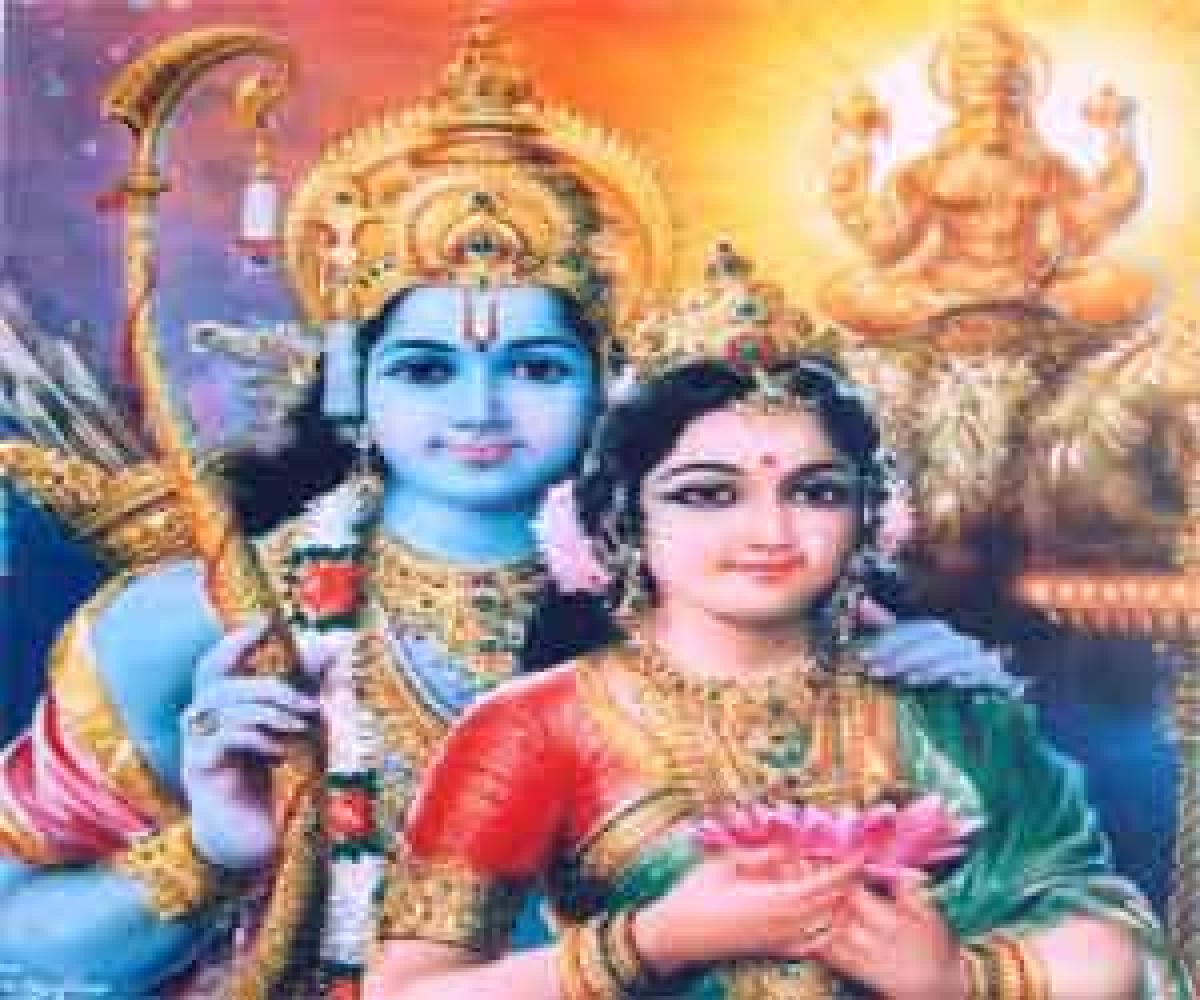Live
- Controversy Surrounds Hyderabad Metro Rail: N.V.S. Reddy’s Comments on Losses Spark Government Concerns
- Android 16 Preview Released: Who Can Access It and What's New
- Rights activist demands Manipur CM’s resignation
- Controversy erupts over cancellation of ineligible BPL cards
- TTD to release February quota Arjitha seva tickets tomorrow
- BJP workers protest alleged misuse of SC funds, clash with PWD officials
- Votes will follow if politicians give up their theatrics
- Vikram Gowda tracked through local informants
- Maharashtra & Jharkhand Polls 2024: Key Battles and Leadership Uncertainty
- Maha polls: 6.61 pc voter turnout recorded till 9 am
Just In

Quite unfortunately, the present generation that is ecstatic over the titillating world of conspicuous consumption and the dazzling array of materialistic pleasures often gets distanced from the wonderful message from our great epics. The Ramayana is an unparalleled story that continues to inspire,
Quite unfortunately, the present generation that is ecstatic over the titillating world of conspicuous consumption and the dazzling array of materialistic pleasures often gets distanced from the wonderful message from our great epics. The Ramayana is an unparalleled story that continues to inspire, which was evidenced when the great epic was televised and cities wore a curfew-like look, signifying the text’s profound influence on humanity.
But, successive generations need to be told about the ever relevant message from the Ramayana. This is vital to create a society that is based on the strong ethical edifice. Truth is eternal. Understanding the inevitability of truth is genius. Reflecting on the true character of human life, Valmiki in Ramayana says, ‘Durlabham hi sadaa sukham’ – ‘To be happy always is something which is difficult to achieve.
That is to say, happiness and sorrow alternate in one’s life and there can never be uninterrupted happiness alone.’ Advocating the invincibility of truth irrespective of who preaches it, the Ramayana propounds, “One who is haughty, who does not know whether what he does is right or wrong and who has taken to the wrong path is to be disciplined even if he is a guru, parent or an elder in age or learning.”
Thus the eternal value of truth prevails over all forms of hierarchy, social or otherwise. All our religious scriptures often exhort everyone to perform one’s duty while longing for divine blessings. Even the Ramayana gives this advice so essential for today’s youth.
The holy text says, “Only the timid and the weak leave things to destiny (daivam) but the strong and the self-confident never bank on destiny or luck (bhagya)”We find people plunging into despair even at an insignificant failure. But, they fail to realise this would further demoralise them. Read these words of Ramayana: ‘Grief destroys one’s courage. It destroys one’s learning. It destroys one’s everything. There is no enemy greater than grief.’
In a befitting tribute to parental sacrifice, Lord Rama told Vasishtha, who accompanies Bharata to the forests for bringing back Rama to Ayodhya: “It is difficult for children to repay the debt of what the parents have done in their upbringing.” Nothing perhaps underlines more one’s commitment to parents, especially at their advanced age. In fact, the story of Rama is a shining example of this bond.
Besides, Rama’s life signifies the universality of fraternal bonds. At a time when family structures are shaken for a host of reasons, the story of Sita-Rama symbolises the treasure of marital love and the sacredness of the nuptial bond. The concept of Ramarajya is an illustrious account of the statecraft, which is increasingly losing its sheen.
“Enthusiasm has great strength. There is no greater strength than enthusiasm. There is nothing which is not attainable in this world for the enthusiastic.” These words of Lakshmana are a simple but versatile lesson in personality development. A wise man should foresee tragedy or misfortune and take action to prevent or overcome such misfortune before it strikes. Only then can he enjoy an orderly life. This wisdom of the Ramayana should guide individuals and institutions alike. For now and for eternity!

© 2024 Hyderabad Media House Limited/The Hans India. All rights reserved. Powered by hocalwire.com







